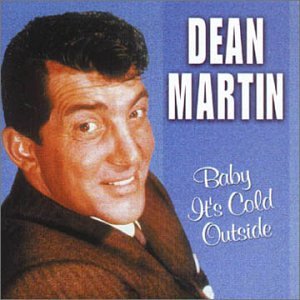
Christmas time is one that is usually full of joy, cheer, and festiveness. A lot of these feelings come from traditional Christmas movies and songs that we watch and sing every year. I can say from personal experience that my family is a huge fan of Christmas movies, specifically Elf, and that my mother listens to Christmas carols basically 24/7 during the month of December. Christmas carols are considered by most to be timeless, some of the best carols being from as long ago as 1948 by Frank Sinatra and others from more recent singers such as Mariah Carey in 1994. However, times have changed and our society has shifted a lot, especially in terms of how women are valued in society. One Christmas song has come into light recently, not for the song’s festive Christmas spirit but rather because of the predatory undertones of the song. This song is none other than “Baby It’s Cold Outside”.
“Baby It’s Cold Outside” was written in 1944 by Frank Loesser and has been covered by countless stars, and it is mostly sung as a duet between a man and a woman. Although this song doesn’t mention Christmas in it, it generally is regarded as a holiday song and makes references to winter and holiday themes. This song is one of the most recognizable holiday songs of the season and has only gained in popularity since it’s initial release. However, today people have begun to criticize the song. There are several lyrics in the song that are questionable, with some alluding to what people today sounds like rape. The song tells a story of a man and a woman at the man’s home, where he is trying to coax her to stay the night with him while she continuously refuses his advances. Two clear examples come to mind that specifically point to problematic behavior. The first example is the line “Say, what’s in this drink?” which is usually sung by the female role in this duet. The line clearly alludes to the woman’s drink being spiked. The second example is the line “The answer is no” which is again sung by the female role in the duet. The persistence of the man trying to get this woman to stay in his company after she literally tells him no is concerning and alarming to say the least. The rest of the song gives off the same vibes as these two examples, but these lines are pretty straightforward in terms of referencing a woman being drugged and held against her will.
A lot of people will argue that this song is not inherently about rape or any kind of persuading of a woman to do something against her will. You could say it’s more of a banter between two people with a flirtatious tone, which I think is probably what the writer of the song intended it to be. However people today are much more sensitive about subjects such as rape, pressuring women, and in general going against the will of a person to make them do something they don’t want to do. Women, men, and those who don’t identify alike have all become a lot more outraged at the “boys will be boys” mentality from decades ago that permitted men to do whatever they wanted and forced women to accept what was handed to them. Therefore, a song such as this with lyrics that explicitly show a man repeatedly pressuring a woman to stay in his home and drink with him to a point where she (potentially jokingly) asks if he slipped something in her drink can no longer stand as art. Our society doesn’t want songs like this anymore because we are trying to cultivate a no tolerance policy when it comes to rape and sexual harassment. This song may have been playful and popular in the past, but no longer can it be played without controversy stirring and people standing up to say that sexually pressuring someone past the point of them saying “no” is a crime.
